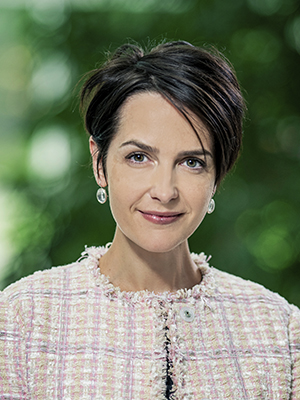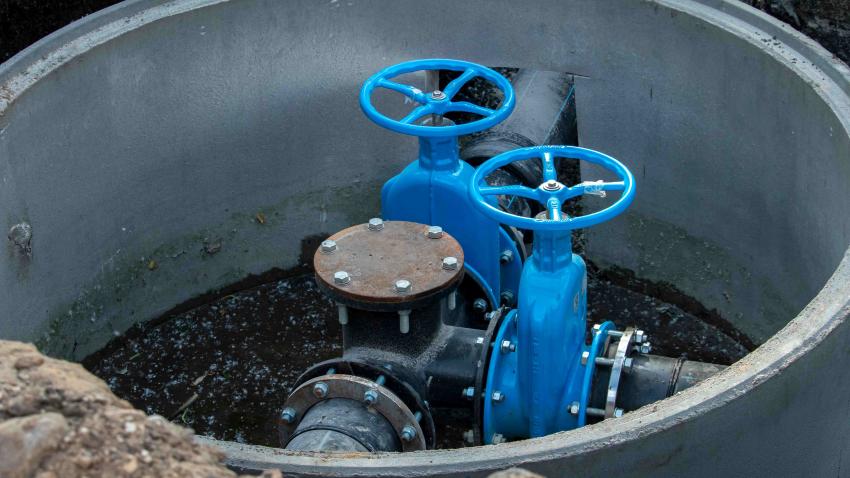The groundwater pollution remediation project implemented in the Port of Riga with the financial support of Switzerland has been completed successfully, and the constructed remediation system efficiently reduces pollution. That was the conclusion of the parties involved in the project – representatives of the Swiss Parliament, the Freeport of Riga, the Ministry of Environment and Regional Development and the State Environmental Service after the assessment of the project course and outcomes. It is known that on the basis of the successful project implementation in the Port of Riga, a new cooperation program is planned for the clean-up of historical pollution in Aizkraukle.
Last week, a delegation of representatives of the Swiss Parliament visited the Port of Riga to get acquainted with the Latvian-Swiss cooperation programme project “Remediation of historically polluted sites in the territory of Sarkandaugava”. The Freeport of Riga Authority, the MEPRD and the State Environmental Service (SES) introduced Swiss parliamentarians to the project schedule and outcomes with the aim to develop a new cooperation programme for the remediation of historical pollution in Aizkraukle on the basis of the successful Riga Port project.
The implementation of the project “Remediation of historically polluted sites in the territory of Sarkandaugava” with the financial support of the Swiss government was launched in 2011, and the infrastructure construction phase was completed in 2017. Currently, the maintenance of the infrastructure is carried out by the Freeport of Riga Authority, providing regular inspection, pumping out of accumulated oil products, cleaning of the system and quality control of the groundwater to be discharged using laboratory tests.
The parties involved in the project unanimously acknowledged that the objective of the project - to improve the quality of soil, ground, groundwater and surface water, to restore and improve the quality of the environment, as well as to mitigate possible threats to the public health, has been achieved. “The main result of the project for all of us is that oil pollution does not continue to flow into the Daugava River, does not pollute the Port of Riga, the Gulf of Riga and the Baltic Sea,” emphasized Andris Ķēniņš, Deputy Director General of the SES.
Oil product pollution in the territory of the port of Riga in Sarkandaugava was formed in the 60s–70s of the 20th century, when the territory was managed by the Soviet army and was used for storage and transshipment of oil products. Within the framework of the remediation project, more than four hundred injection wells were drilled for the remediation of polluted sites, communications were built, and oil product pumping and groundwater treatment plants in mobile containers were installed.
1721 tons of oil products were pumped out from the historically polluted areas adjacent to the Sarkandaugava and Milgravis canal and transferred for regeneration, as well as more than 7122 tons of soil contaminated with viscous and asphaltic oil products were excavated and forwarded for processing. A 376-meter-long watertight sheet pile wall and drainage system were built along the bank of the Sarkandaugava river, while a 110 meters long drainage system was built along the Milgravis canal bank. The remediation works planned in both phases of the project have been carried out on a total area of 8 ha. “Currently the drainage system continues to keep oil products from entering the Daugava River, and pollution is pumped out and disposed of on a monthly basis. Up to 30 tons of oil products are pumped out annually and this process is expected to continue for many years to come. Quality analysis of the water entering the river is carried out on a monthly basis,” said Vilis Avotiņš, Head of the Environment Department of the Freeport of Riga Authority.
In total, 15.3 million Swiss francs were invested in the project implementation. 85% of the costs - 13 million Swiss francs – were financed by the Swiss government. “The financial support of the Swiss government was essential for the remediation project to be carried out. At the same time, the knowledge and experience we gained from working with Swiss partners was equally important. They have helped us to learn, grow and implement similar projects in Latvia on a different level,” added A. Ķēniņš.
Information for media

- [email protected], +371 670 308 53
- Freeport of Riga Authority
- 12 Kalpaka blvd, Riga, Latvia, LV-1010
 English
English























